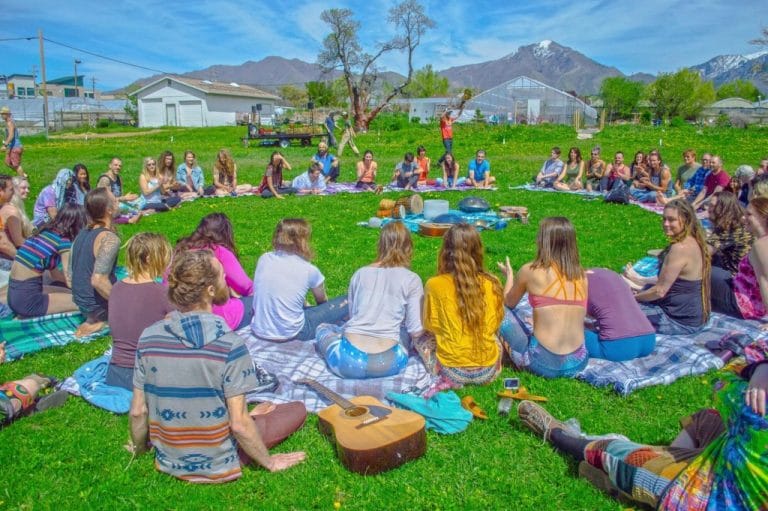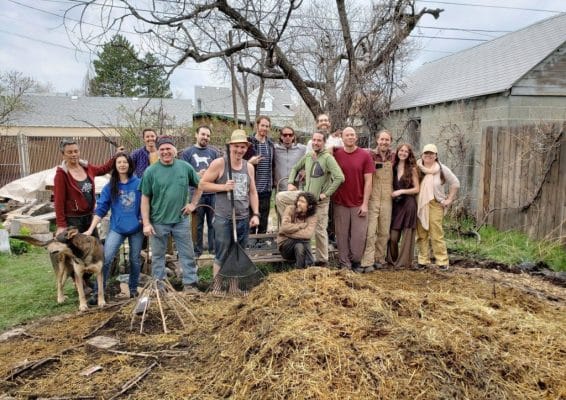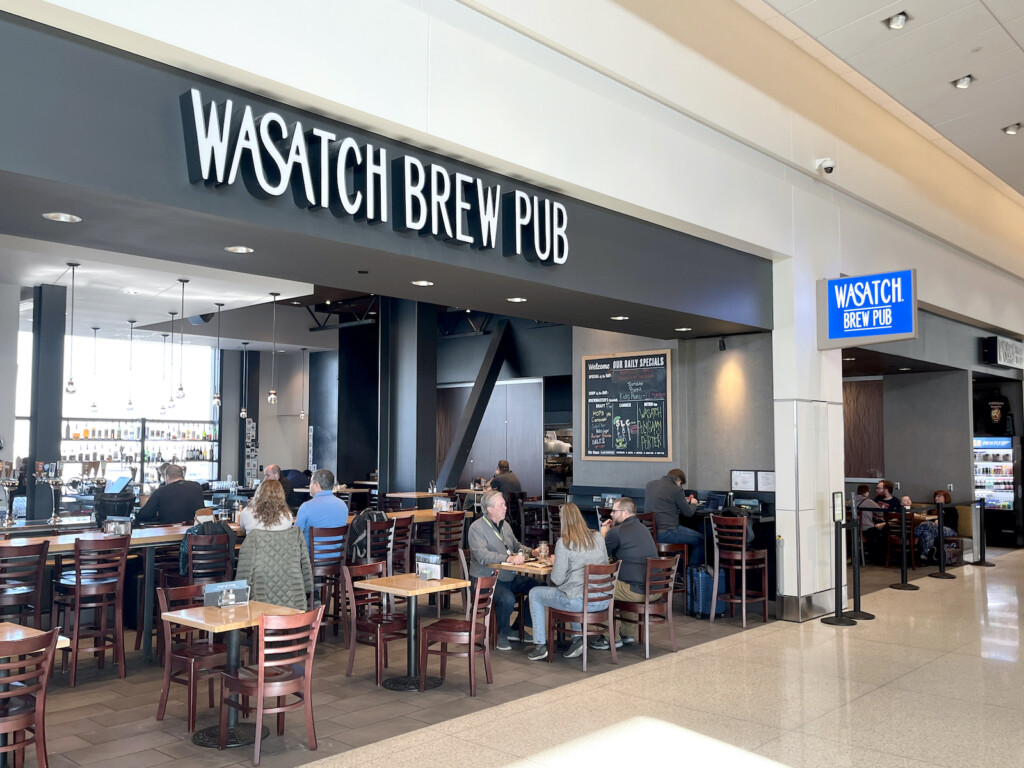Mimicking natural ecosystems
The Krishna Food Forest & Farm , located behind the Sri Sri Radha Krishna temple in Millcreek, is a wonderfully accessible place for anyone in the area to learn about ecological food production while engaging with the Millcreek Permaculture Guild, a friendly community and leadership team.
It is run by the Millcreek Permaculture Guild, which is made up of a core leadership team, one employee, and the hands of many community volunteers.
If you’re not familiar with permaculture, it can be thought of as a design methodology that utilizes whole systems thinking and mimics patterns found in natural ecosystems. Permaculture is the antithesis of industrial agriculture and other large-scale industrial systems. It can be applied to the design of a landscape, a home, or an entire community.
Krishna Food Forest & Farm permaculture guilds
In permaculture, a guild is when several plant species are cultivated together for the multi-yield benefits provided by their interactions. The term is applied to social groups, implying that when people gather and work together, they’re able to mutually benefit and support one another in learning and well-being.
The local permaculture community primarily began gathering at the Krishna temple in Millcreek in 2016.
The community has grown to become known as an entire collective with smaller guilds now meeting across the state. Beyond the Millcreek guild, there are also Liberty Park, Rose Park, and Ogden permaculture guilds, with guilds forming in Southern Utah as well.
The permaculture guilds gather every Monday night throughout the year to spend time gardening, having a lesson, and sharing a potluck dinner.
The mission of the Krishna Food Forest & Farm, colloquially known as the Krishna garden, is to build a holistic community through advocacy and local farming and fostering emotional safety by seeking to know the needs and offerings of each individual in the community.
Food forests, which are sometimes called forest gardens and commonly used and promoted in permaculture, are an agriculture system based on a woodland ecosystem, primarily featuring perennial fruit and nut-bearing trees, bushes, and vines.
The once-acre plot of land making up the Krishna garden is divided into sections that are cultivated using various growing methods.
- 3000 square feet is devoted ‘food forest,’ with peach, apple, nectarine, and cherry trees, as well as strawberries and goji berry bushes.
- 3500 square feet is traditional farm rows for intensive vegetable production like broccoli, lettuce, tomatoes, peppers, etc.
- 1800 square feet is home to a greenhouse, which was built this winter and made it possible to grow 7000 seedling starts this spring.
- 600 square feet is a perennial herb garden featuring culinary herbs like lemongrass, fennel, tarragon, and stevia.
- 3000 square feet is feral and tended to by simply broadcasting seeds and occasional watering, featuring foods like wild orach, kale, and carrots.
The garden utilizes both ‘veganic’ and ‘beyond organic’ methods of cultivation, so for example, fertilizers used are simply compost, compost tea, and green manures. While not directly associated with the Hare Krishna religion, the garden adheres to some Krishna guidelines out of respect because it is hosted on their land. This means no garlic, onions, mushrooms, or animal products are grown in the garden, consumed in the potlucks, or used to cultivate the land.
The yields obtained from the Krishna garden are sold as shares in a weekly CSA (community supported agriculture), as well as donated to community volunteers, and used in the Krishna kitchen.
Contact Maomi Cundick at 801-623-0738 if you’re interested in purchasing a CSA share to receive a box of fresh, veganically grown produce from the Krishna garden every week during the growing season.
Follow and join the groups and pages on Facebook to stay updated on Utah’s Permaculture Collective including the Millcreek Permaculture Guild and the work they do at the Krishna Food Forest & Farm. U
If you’d like to join or start a permaculture guild in your area, contact Michael Cundick at 801-722-5865.
If you liked this story, click HERE and take a garden and farm reading tour.







